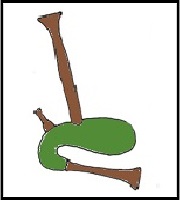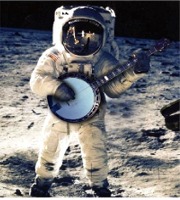The History of Lincoln Waites
Introduction
In early 2006, when I casually asked a friend if he knew anything about "Lincoln Waites", I never thought I would be embarking upon the path of research myself, but that is exactly what happened. Now, through these pages I begin to share my research with you. This is work in progress - so please make return visits to see what has changed and what new information has been added. And, if you know anything about Lincoln Waites, I would be delighted to hear from you. (A.M.G. June 2006)
Email: [email protected]
Who are Waits?
A New Perspective - Professor Richard Rastall
The traditional answer to this question has been that Waites were musicians who had their beginnings in "the Watch", introduced by Henry III in 1253.
In 2006, Richard Rastall MA MusB PhD FSA (Professor of Historical Musicology, School of Music, The University of Leeds), has revisited earlier research and original documents. This has led him to reach the conclusion that, whilst the Royal Watch (Vigilatore) of Edward III certainly had musicians amongst their number, there is no concrete evidence that town watches developed into musicians. Professor Rastall publicised his findings at a lecture to the International Guild of Town Pipers, in York, on 7 July, 2006. Professor Rastall agrees that the term "Waites" was used both for the Royal watch and for Town Musicians, but has not yet found any explanation for this dual meaning. Professor Rastall is an expert on the Minstrells of Medieval Britain.
This new view would point to musical Waites emerging in Tudor times, not in the Medieval period, as previously thought.
The Traditional View
William the `Conqueror' put England under Curfew. The curfew bell rang each night at 8pm. That was the signal for people to put out their fires and lamps and go to bed. The official reason for this was to prevent fires from accidentally burning down mainly wooden houses whilst people slept, but the real reason was to keep men off the streets to lessen the opportunities for plotting against the new regime.
In 1103 Henry I repealed the curfew laws that were crippling the country's commercial and social life. The good citizens of England enjoyed their new freedom, but so did the footpads, thieves, robbers and murderers who were now free to roam abroad at night as well. By 1253 it had become very dangerous to be out in the evening. Things became so bad that Henry III had to find a way to restore law and order. He did this by commanding that watches should be kept at night. Town officials had the task of appointing good men to patrol the streets during the hours of darkness to keep the peace and to arrest criminals. From spring to autumn the Watch would meet each evening to protect the townsfolk. At times of inactivity, some would play musical instruments to entertain themselves. This is how the town bands or `Waits' started. Apart from providing entertainment, the Waits also had a part in the Watch's peace keeping role. When a patrol was mounted it was accompanied by Waits. They played as loudly as possible - to frighten off evildoers before the watch arrived in their location. This loud commotion also meant that all the townsfolk could hear that the watch were about their duty.
The word "Waits" probably comes from the German 'wacht'. Many different spellings have been used - Waits, Waites, Wayts, Waytes etc.
Waits gradually evolved into bands of municipal musicians, with a civic duty to play music and present entertainment at special occasions and ceremonies such as "Mayor Making" or a visit from an important person. The custom of Official town Waits died out, in most English Boroughs, soon after the Municipal Corporations Act (1835) was passed. Lincoln was unusual in retaining at least one Wait until 1857.








